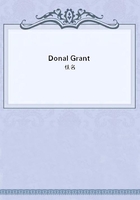
第24章
The earl nodded agreement, and Donal rose at once. With a heart full of thankfulness and hope he walked back to his friends. He had before him pleasant work; plenty of time and book-help; an abode full of interest; and something for his labour!
"'Surely the wrath of man shall praise thee!'" said the cobbler, rejoicing against the minister; "'the remainder of wrath shalt thou restrain.'"
In the afternoon Donal went into the town to get some trifles he wanted before going to the castle. As he turned to the door of a draper's shop, he saw at the counter the minister talking to him.
He would rather have gone elsewhere but for unwillingness to turn his back on anything: he went in. Beside the minister stood a young lady, who, having completed her purchases, was listening to their conversation. The draper looked up as he entered. A glance passed between him and the minister. He came to Donal, and having heard what he wanted, left him, went back to the minister, and took no more notice of him. Donal found it awkward, and left the shop.
"High an' michty!" said the draper, annoyed at losing the customer to whose dispraise he had been listening.
"Far beyond dissent, John!" said the minister, pursuing a remark.
"Doobtless, sir, it is that!" answered the draper. "I'm thankfu' to say I never harboured a doobt mysel', but aye took what I was tauld, ohn argle-barglet. What hae we sic as yersel' set ower's for, gien it binna to haud's i' the straicht path o' what we're to believe an' no to believe? It's a fine thing no to be accoontable!"
The minister was an honest man so far as he knew himself and honesty, and did not relish this form of submission. But he did not ask himself where was the difference between accepting the word of man and accepting man's explanation of the word of God! He took a huge pinch from his black snuffbox and held his peace.
In the evening Donal would settle his account with mistress Comin: he found her demand so much less than he had expected, that he expostulated. She was firm, however, and assured him she had gained, not lost. As he was putting up his things, "Lea' a buik or twa, sir," she said, "'at whan ye luik in, the place may luik hame-like. We s' ca' the room yours. Come as aften as ye can. It does my Anerew's hert guid to hae a crack wi' ane 'at kens something o' what the Maister wad be at. Mony ane 'll ca' him Lord, but feow 'ill tak the trible to ken what he wad hae o' them. But there's my Anerew--he'll sit yon'er at his wark, thinkin' by the hoor thegither ower something the Maister said 'at he canna win at the richts o'. 'Depen' upo' 't,' he says whiles, 'depen' upo' 't, lass, whaur onything he says disna luik richt to hiz, it maun be 'at we haena won at it!'"
As she ended, her husband came in, and took up what he fancied the thread of the dialogue.
"An' what are we to think o' the man," he said, "at's content no to un'erstan' what he was at the trible to say? Wad he say things 'at he didna mean fowk to un'erstan' whan he said them?" "Weel, Anerew," said his wife, "there's mony a thing he said 'at I can not un'erstan'; naither am I muckle the better for your explainin' o' the same; I maun jist lat it sit."
Andrew laughed his quiet pleased laugh.
"Weel, lass," he said, "the duin' o' ae thing 's better nor the un'erstan'in' o' twenty. Nor wull ye be lang ohn un'erstan't muckle 'at's dark to ye noo; for the maister likes nane but the duer o' the word, an' her he likes weel. Be blythe, lass; ye s' hae yer fill o' un'erstan'in' yet!"
"I'm fain to believe ye speyk the trowth, Anerew!"
"It 's great trowth," said Donal.